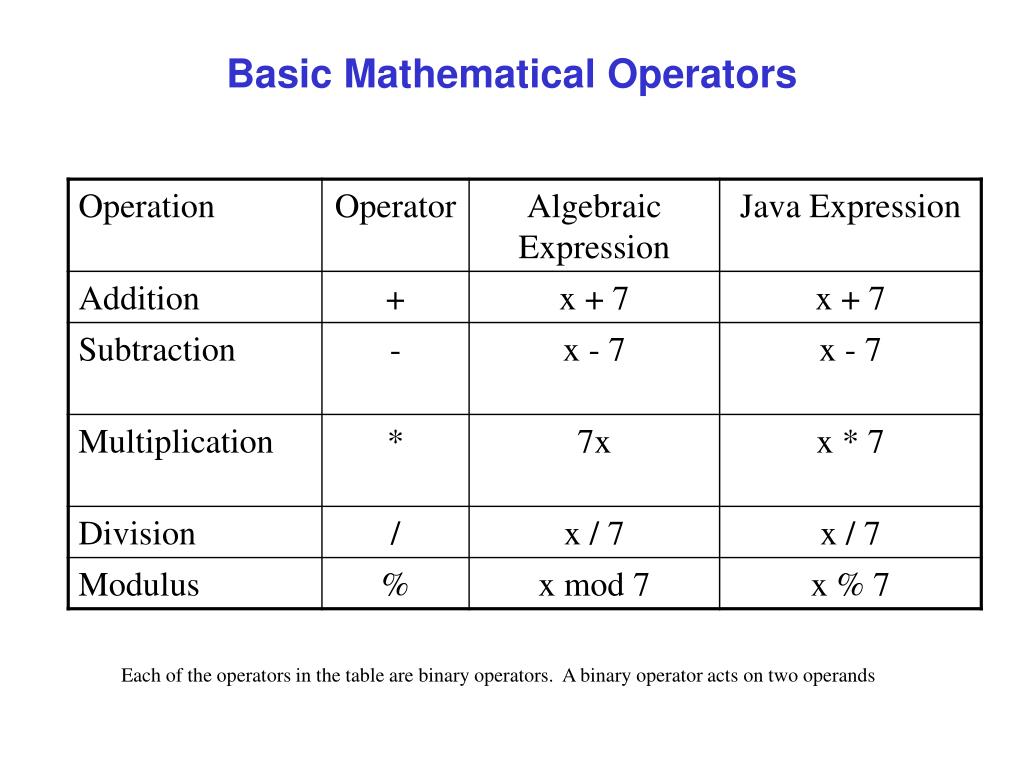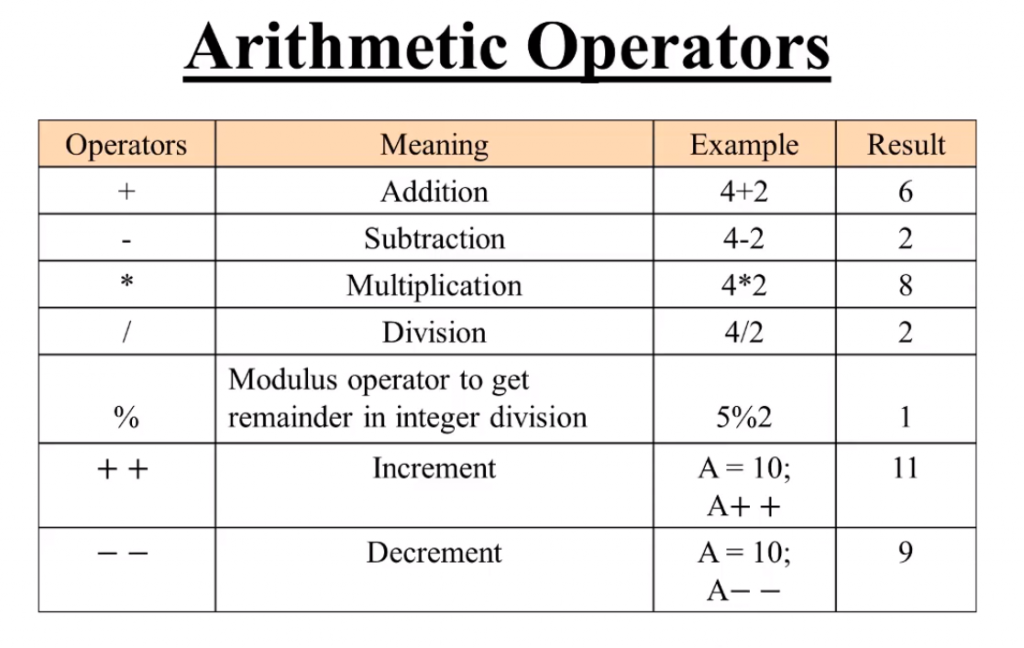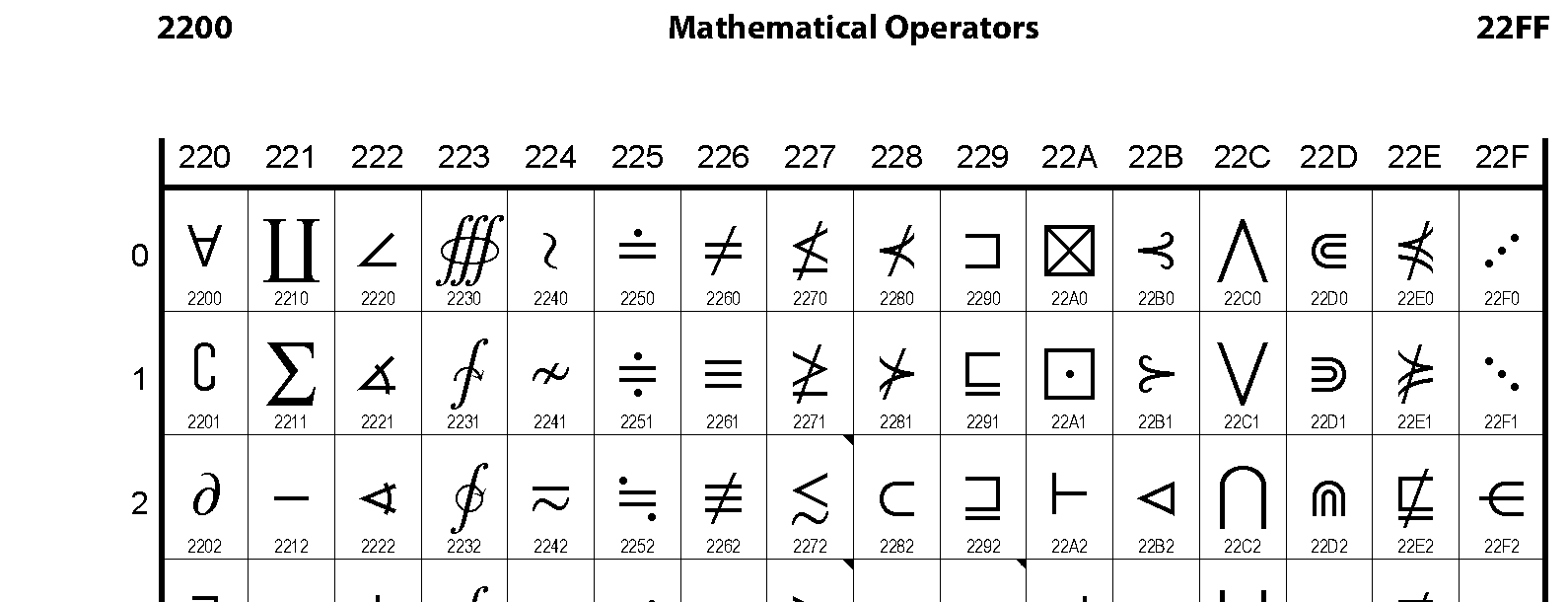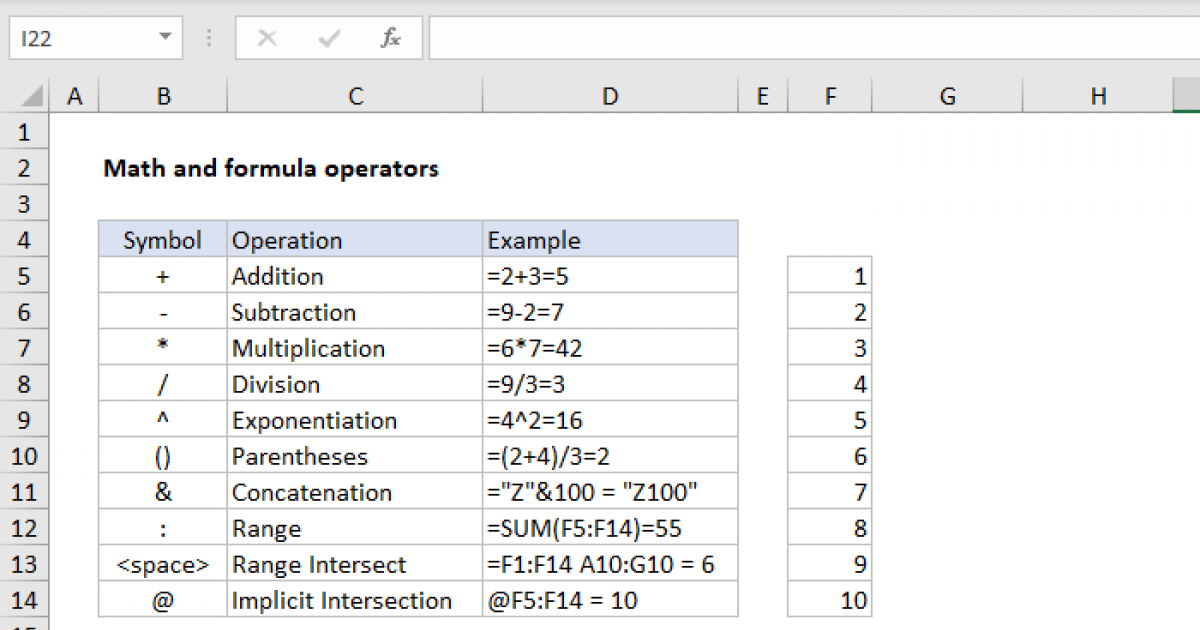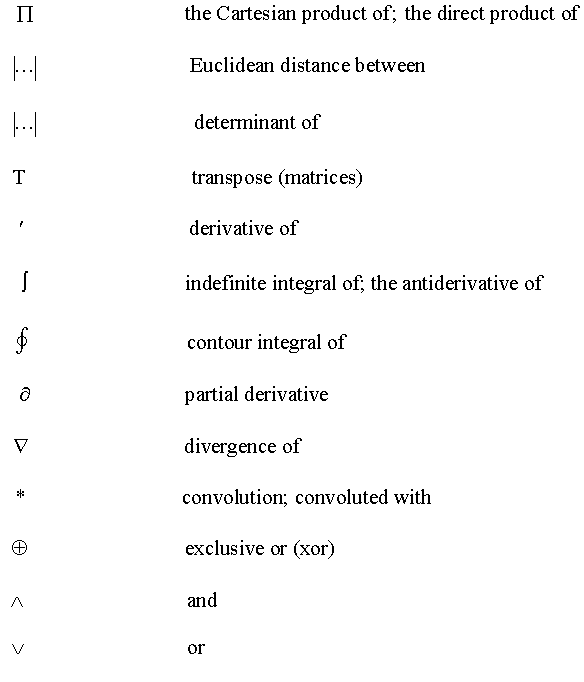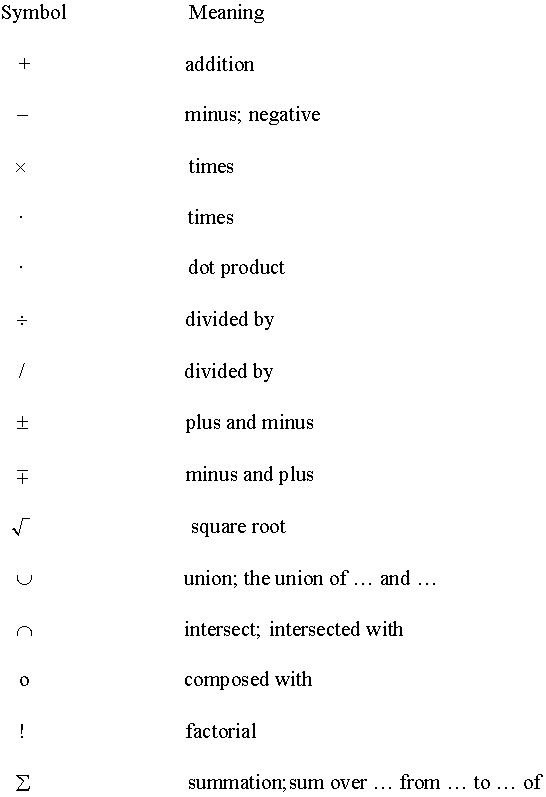Operator In Math - Operators occur commonly in engineering, physics and mathematics. In mathematics, an operator or transform is a function from one space of functions to another. From a formal point of. The difference between an operator and a function is simply that we've decided to call the operator an operator and we've decided to call the function a function. In mathematics, an operator is generally a mapping or function that acts on elements of a space to produce elements of another space (possibly and sometimes required to be the. A symbol (such as , minus, times, etc) that shows an operation (i.e.
Operators occur commonly in engineering, physics and mathematics. In mathematics, an operator or transform is a function from one space of functions to another. From a formal point of. A symbol (such as , minus, times, etc) that shows an operation (i.e. The difference between an operator and a function is simply that we've decided to call the operator an operator and we've decided to call the function a function. In mathematics, an operator is generally a mapping or function that acts on elements of a space to produce elements of another space (possibly and sometimes required to be the.
The difference between an operator and a function is simply that we've decided to call the operator an operator and we've decided to call the function a function. In mathematics, an operator or transform is a function from one space of functions to another. A symbol (such as , minus, times, etc) that shows an operation (i.e. From a formal point of. In mathematics, an operator is generally a mapping or function that acts on elements of a space to produce elements of another space (possibly and sometimes required to be the. Operators occur commonly in engineering, physics and mathematics.
PPT Mathematical Operators PowerPoint Presentation, free download
In mathematics, an operator is generally a mapping or function that acts on elements of a space to produce elements of another space (possibly and sometimes required to be the. A symbol (such as , minus, times, etc) that shows an operation (i.e. In mathematics, an operator or transform is a function from one space of functions to another. Operators.
Mathematical Operations Learn and Solve Questions
The difference between an operator and a function is simply that we've decided to call the operator an operator and we've decided to call the function a function. From a formal point of. In mathematics, an operator is generally a mapping or function that acts on elements of a space to produce elements of another space (possibly and sometimes required.
"Nabla Operator Definition Math And Calculus Basics" Poster for Sale
In mathematics, an operator is generally a mapping or function that acts on elements of a space to produce elements of another space (possibly and sometimes required to be the. The difference between an operator and a function is simply that we've decided to call the operator an operator and we've decided to call the function a function. A symbol.
Math Operations Chart Math operations, Writing algebraic expressions
From a formal point of. A symbol (such as , minus, times, etc) that shows an operation (i.e. In mathematics, an operator is generally a mapping or function that acts on elements of a space to produce elements of another space (possibly and sometimes required to be the. Operators occur commonly in engineering, physics and mathematics. In mathematics, an operator.
Arithmetic Operators in JavaScript.
In mathematics, an operator or transform is a function from one space of functions to another. In mathematics, an operator is generally a mapping or function that acts on elements of a space to produce elements of another space (possibly and sometimes required to be the. From a formal point of. Operators occur commonly in engineering, physics and mathematics. The.
2200 Mathematical Operators
A symbol (such as , minus, times, etc) that shows an operation (i.e. Operators occur commonly in engineering, physics and mathematics. The difference between an operator and a function is simply that we've decided to call the operator an operator and we've decided to call the function a function. From a formal point of. In mathematics, an operator or transform.
Python Arithmetic Operators Teaching Resources
In mathematics, an operator or transform is a function from one space of functions to another. A symbol (such as , minus, times, etc) that shows an operation (i.e. Operators occur commonly in engineering, physics and mathematics. The difference between an operator and a function is simply that we've decided to call the operator an operator and we've decided to.
Excel Math Operators Exceljet
In mathematics, an operator or transform is a function from one space of functions to another. From a formal point of. The difference between an operator and a function is simply that we've decided to call the operator an operator and we've decided to call the function a function. A symbol (such as , minus, times, etc) that shows an.
Operator Related Math Symbols
A symbol (such as , minus, times, etc) that shows an operation (i.e. The difference between an operator and a function is simply that we've decided to call the operator an operator and we've decided to call the function a function. In mathematics, an operator or transform is a function from one space of functions to another. Operators occur commonly.
Operator Related Math Symbols
Operators occur commonly in engineering, physics and mathematics. In mathematics, an operator or transform is a function from one space of functions to another. From a formal point of. The difference between an operator and a function is simply that we've decided to call the operator an operator and we've decided to call the function a function. A symbol (such.
Operators Occur Commonly In Engineering, Physics And Mathematics.
From a formal point of. The difference between an operator and a function is simply that we've decided to call the operator an operator and we've decided to call the function a function. In mathematics, an operator or transform is a function from one space of functions to another. A symbol (such as , minus, times, etc) that shows an operation (i.e.
